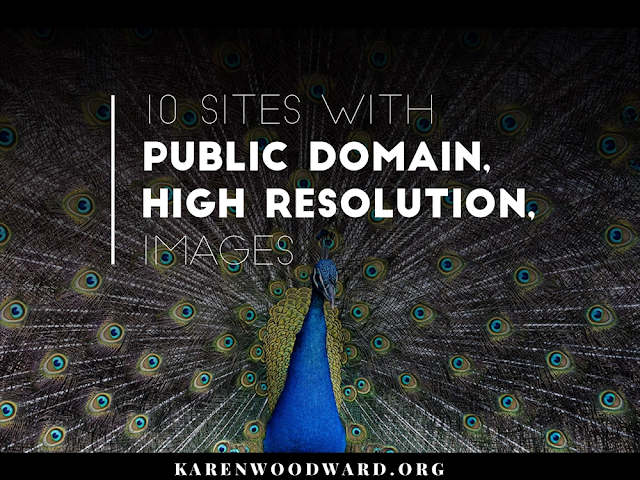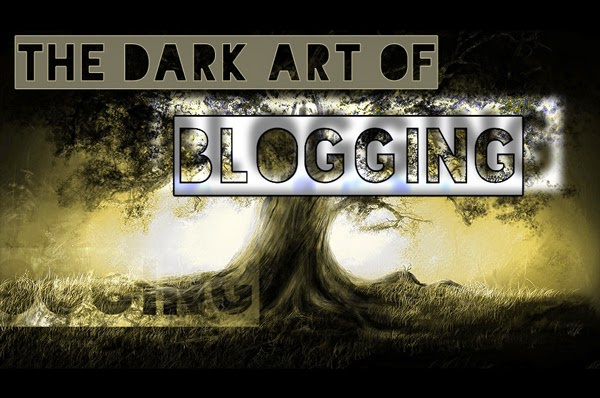Yesterday Bob (that's not his real name, but he doesn't want me to use his real name) asked me for pointers on how to improve his blog's position in Google's search results. His goal: he wants a link to his website to be among the first five results returned when someone searches on a particular phrase.
I started to give Bob advice and then thought. Wait! This would be a great idea for a blog post.
First off, though, I want to assure you that Search Engine Optimization (SEO) is falling-off-a-log EASY. Well, the beginning stuff, the stuff that can make a huge difference, is. A SEO expert could fine tune your site and your SEO presence would (hopefully) go from good to awesome, but if good is good enough, read on.
1. What is Search Engine Optimization (SEO)?
This is the basic question of Search Engine Optimization:
How do I optimize my site so that links to my content are served up when users search on certain keywords?
Here's another way of putting it:
You want your site to be to search engines what catnip is to felines.
Ideally, you want your content to be returned first but I've
found simply being on the first page of search results generates a lot of
traffic, depending on how popular the search phrase is that your link is
paired with.
An Example
Let's say I want to look at recipes. Using Google Search, I type in "recipes". Here's what I got back:
First result: from allrecipies.ca
Second result: from allrecipies.com,
Third result: from foodnetwork.ca,
Fourth result: from readersdigest.ca,
Fifth result: from kraft.com
All things being equal, the first result returned will get most of the traffic, but all the links returned on the first page will do okay, especially the ones on the upper part of the page.
As you can see, there's a lot of competition to place high for "recipes". All of those sites get a lot of traffic and are maintained by many professionals. They're going to place better in the search results than you are since you're not an expert and you're only one person.
The solution: focus your content on one small area of cooking such as recipes that are quick and easy to make. Then you can try to get your site noticed when people perform searches like "recipes for writers" "recipes for the rushed", and so on. When you write a post for gingerbread cookies--cookies twice as good ready in half the time!--you can use keywords that will help Google identify what it is and return it if someone types in something like "gingerbread molasses cookie quick".
Summary: You likely have a chance of getting your site onto the first page of search results for less popular (long tail) terms and, using this method, you can still get a fair amount of traffic.
2. Why should I care about SEO?
If it doesn't matter whether your site gets traffic from search engines then SEO isn't going to be first on your list of priorities. That said, much of what I'm
going to discuss is part of 'best practices' and, who knows,
one day search traffic may be important to you. There's no harm in
laying the foundations now.
So, why would someone care about optimizing their site so that it attracts search engine traffic?
-
You're selling something. If you're selling anything on your site, or thinking of one day selling something on your site, you will want a lot of people to come look at it.
-
Growing an audience. If you're not selling anything but want your writing to be read by someone other than your great aunt Edna, getting more eyes on your site is a good thing. It's one way of building an audience, a platform, a community.
-
Best practices. Most of what you'll do when optimizing your site for search engines is clearly and accurately labeling your content, and this is something you probably should do
anyway since it's part of best practices for site design.
3. SEO: Optimizing Your Site For Search Engines, What They Look For
Google (and other search engines, but in the following discussion,
for brevity, I'm going to talk about Google) wants to give people
the information they are looking for when they conduct a search and Google wants that information
to be
accurate,
relevant and of
good quality. Here's what that means for me as a blogger:
Accurate: I need to get my facts right. For instance, I can't say that dogs are felines. (You'd be surprised!)
Relevant: If you write a blog post on what substances are toxic to cats (chocolate, for instance) you want the post to be categorized as being about cats, not dogs, not sloths, not giraffes. You also want the post to show up on searches for toxic substances for animals, so keywords like "cute" and "kitten" aren't your friends.
Good quality: Don't ask me how Google determines this, but it's gotten very good. Books are written on this subject so I'll just say that you want to bring your A-game to your posts, while keeping in mind that a more informal style is the norm and an occasional typo is tolerated.
Okay, back to my friend Bob and what I would advise him to do to optimize his site to attract search engine traffic.
a. Use categories and tags
Bob runs Wordpress on his own hosting site, but what I'm about to say applies (I believe) to websites over at Wordpress.com as well.
When you're writing a post in Wordpress, on the right-hand side of the screen, you'll see a place where you can select various Categories and Tags.
Fill these in! You don't have to use many. Choose one or two categories and then refine it with two or three tags.
For instance, if you're blogging about Amazon's Kindle Fire HD tablet then your categories might be "Retail" and "Tablet" and your tags might be "Amazon" and "Kindle Fire HD". If your blog is on Blogger.com you don't have categories and tags, you just have labels, in which case I would just use "Retail", 'Tablet", "Amazon", and "Kindle Fire HD".
b. Use images and give them meaningful names and descriptions
Early on I found I got a lot of traffic because of the images I used on my site (of course "a lot" in those days was 100 pageviews a day!).
Name. My camera automatically names my photos with (really long) numbers and, early on, I didn't bother changing the numbers to something more descriptive. Search engines look at things like names to determine what kind of content is on a particular page. The more consistent, accurate, cues you give the search engines the better they are at serving up your pages at appropriate times.
Alternate Text. If you have access to this field don't leave it blank. If you've turned off images in your browser then what gets shown is this alternate text so it is best practices to include it. But even if your visitor never sees the alternate text search engines do. This is another way of telling them what sort of content is on your page.
Caption. Same idea. Though since I use the caption to give copyright information I don't have a lot of leeway here.
Description. Again, very important for telling both search engines and humans what your image is about.
The rule of thumb: If there's a way for you to tell search engines about the content on your page, do it!
c. Choose a descriptive domain name
The more descriptive your domain name the better. For instance, if you're a horror writer a great domain name would be horrorwriter.com. Naturally that one's taken, but you might try something like zombiewriter.com or scarystories.com. You get the idea.
If you don't have a descriptive domain name but you have already built up a community then I wouldn't worry about it. If it works, don't fix it.
The only time I would think about changing a domain name that had been in use for some time was if it was misleading to both people and search engines.
For instance, a horror writer specializing in zombie stories probably wouldn't want to have goodcooking.com or fingerlickinggood.com as a domain name. An exception to this might be ilikebrains.com. It might mislead search engines but it is
memorable and fun
. Humans get the implication and, in the end, that's what matters.
d. Choose descriptive blog titles
In university one of my English teachers gave me heck because the title of one of my essays was too descriptive. He said I should be more creative, less literal. Perhaps he was right about the title of my essay (though I never thought so) but if he takes that attitude toward blog titles he's dead wrong.
Search engines aren't creative. They don't understand tongue-in-cheek commentary or puns. Which isn't to say you should
never have a whimsical title. You have categories, tags, labels, etc., to let search engines know what your post is about. Just be aware that these kinds of titles are harder for search engines to make sense of.
Search engines also don't like vagueness. For instance, I could have titled this
blog post "How to create a better web page". That's more or less what
I'm talking about, but I used the words "SEO", "Google" and "blog" because they're more specific and so give search engines a better idea of what content is on the page.
e. Echoing: Repeating keywords throughout your post, your tags and your categories.
Here's a rule of thumb:
Try and work in two or more of your keywords into the title of your
blog, the body of your blog and also use them in your categories and
tags.
Do this sparingly since it can feel spammy if overdone.
For instance, in this post SEO is a keyword. I have it in my title, I have it as a label, and I've repeated it several times within the body of my post.
But only where appropriate. Google is smart, you don't have to repeat the world dozens of times to pick up on the fact that you're writing a post having to do with search engine optimization.
f. LEGITIMATE links back to your site are good, the more the better
Legitimate links, or backlinks, are those which folks put up on their pages because they like your content. If anyone tells you they can arrange it so that a lot of other websites will link to yours, run away. Run very very fast.
This trick used to work--some folks would have networks of hundreds of websites that would do nothing but link to other websites--but after Google's Panda and Penguin updates having these sort of links point to your website actually
hurts you.
So how does one get legitimate links to your website? Here are a few options:
Flickr
Bloggers love pictures so upload a few and make them available for others to use if they like, they just have to attribute the photo to you. Although it's not strictly necessary, it's best practices to include a link back to your site.
Guest Blog
Ask other bloggers if they accept guest posts. Most do. (I do!) As a courtesy, a guest blogger is allowed to leave at least one link back to their website. (
7 Tips On How To Get Your Guest Post Accepted)
Blog Directories
There are various blog directories such as
Technorati that you can register your blog with.
I did this a year ago. While I'm not sure how much it helped I am sure it didn't hurt. Bottom line: it's another place for people to learn about my blog and it only took about an hour of my time.
Social Media
I'll be honest, I have a Facebook account but I really only use
Twitter. Perhaps I should use Facebook. If I could magically squeeze more hours into the day I'm sure I would, but I love Twitter, I (think I) understand Twitter and I get a significant amount of traffic from Twitter.
Twitter is an awesome way of getting links to your website in front of people who would be interested in your content. How?
Hashtags (eg: #). Using hashtags you can get your tweets in front of people who don't follow you. Folks who've never
heard of you. (I talk about this more in
19 Ways To Grow Your Twitter Following.)
g. Create Great Content
Hands down, the single best way of making Google Search love your blog is to regularly post great content. That is, content that is accurate, well marked up and well written. Google is biased to favor new articles, so try to blog at least once a week, but if you can't manage it, try for at least once a month.
h. Google Analytics & Google Webmaster Tools
Google has developed many tools it provides, free of charge, that will provide you with valuable feedback on, for example, which search terms are bringing visitors to your site, how many times a particular article has been accessed, the average length of time a visitor spends on your site, and so on.
I highly recommend using both
Google Analytics and
Google Webmaster Tools, but if you're only going to use one I would say use Google Analytics. It's easy, vastly informative and takes only 15 minutes or so to set up.
I've only covered a fraction--a fraction of a fraction of a fraction!--of the material on how to optimize a site to attract search engines. If you have any questions, or you'd like me to say more about a point I addressed,
please leave a comment and ask. I love hearing from you. :-)
Other articles you might like:
-
Chapter Breaks: Where Should They Go?
-
How To Attribute Artwork Licensed Under The Creative Commons
-
Making A Scene: Using Conflicts And Setbacks To Create Narrative Drive













